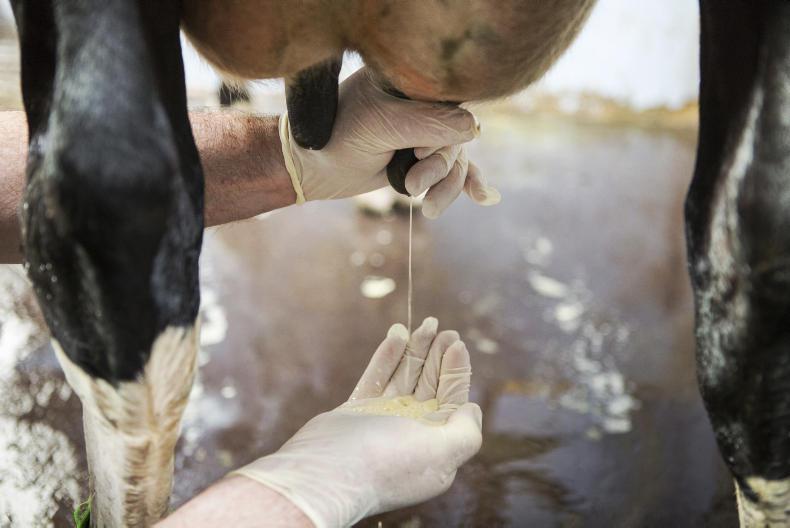Farmers are increasingly being warned of the dangers of antimicrobial resistance or AMR. It’s a hot topic as there is an increase in the amount of micro-organisms that are now antibiotic resistant, that is, they are not killed by antibiotics. This can have a massive impact for animal and human healthcare. A recent example of this is with MRSA in humans – an infection that cannot be cured by antibiotics.
Overuse of antibiotics is being blamed for the increase in resistance and, as agriculture is one of the main consumers of antibiotics, farms are being targeted. While dairy, cattle and sheep farm systems do not use as much antibiotics as say the pig or poultry sector, the use of blanket antibiotic treatments is coming under intense scrutiny and reducing antibiotics is a main priority for all farming sectors.
The good news is that alternatives are becoming available. A Galway firm, Westway Health, is at the forefront of developing a new non-antibiotic mastitis treatment. The company is a collaboration between Mayo Healthcare and National University of Ireland, Galway (NUIG). The company is based at the Business Innovation Centre at NUIG and was the recipient of €2.5m funding from the EU.
According to Ruairi Friel of Westway Health, the company’s lead product in development is PanaMast LC. This is a non-antibiotic mastitis treatment for lactating cows. I asked Ruairi how the product works.
“PanaMast works via intramammary syringe into the teat canal of the cow immediately after milking. Its method of administration is similar to alternative treatments. However, PanaMast LC aims to revolutionise the way mastitis is treated. Acting as a broad-spectrum antimicrobial, it will be effective against all pathogenic bacteria, including antibiotic-resistant strains. In field trials to date this has shown excellent efficacy in comparison with existing products. In cases of mastitis caused by S. Aureus, the effectiveness of current treatments is around 5-15%, with culling of the cow the typical outcome. By comparison, treatment with PanaMast LC has shown an approximate cure rate of 70%,” Ruairi says.
Because there is no antibiotics used in the treatment, there is no requirement to withdraw the milk, making PanaMast the first zero milk withdrawal mastitis treatment. The product is currently undergoing late-stage testing before regulatory approval can be granted, a prerequisite for any medicinal product before it can be sold on the market. Pricing and dosing have not been finalised, but Ruairi says they expect it to be in line with other products on the market. He expects the product to be ‘on the shelf’ by 2021/2022.
